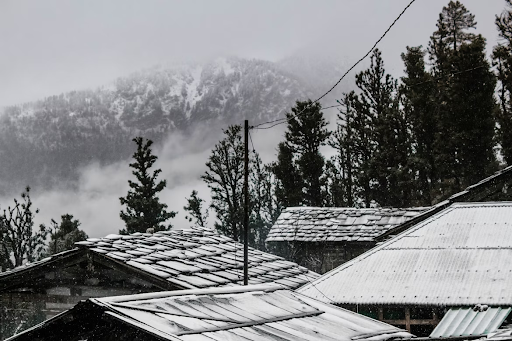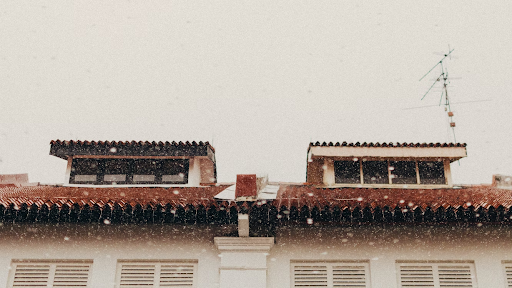
 Loading... Please wait...
Loading... Please wait...Save Money. Grow Your Own!
Fast Plain Box Shipping.
We ship to the US & Canada.
Posted on 11th Jul 2022
It's that time of year again when the sun is shining and the temperatures are rising, but with the good weather comes some bad news: extreme weather conditions. Whether it be a tornado, hurricane, or flash flood, there's no telling when or where these natural disasters will hit. And when they do, you'll want to make sure your property is as protected as possible. Let's explore some tips on how to protect your property from the elements in case of a natural disaster. From installing a storm shelter to buying flood insurance, we've got you covered!

The first line of defense against any natural disaster is your roof. So, it's important to inspect it regularly and make sure it's in good condition. If you live in an area prone to hurricanes or high winds, consider installing hurricane straps to help keep your roof attached to the rest of your house. Also, make sure to consider hail damage roof repair in advance if you live in an area where those are common. You should also check the gutters and downspouts to make sure they're clear of debris so they can properly drain water away from your home during a storm. If you live in an area susceptible to wildfires, you'll want to take extra measures to protect your roof. This includes clearing any dead leaves and branches around your property, as well as installing metal mesh screens over vents and chimneys.
Your home's siding is also vulnerable to damage from the elements. If you live in an area with high winds, consider installing hurricane shutters or impact-resistant glass to help protect your windows. If your home is surrounded by trees, make sure to trim any branches that could potentially fall on your house during a storm. You should also inspect your siding regularly for cracks or holes and repair them as soon as possible. If you live in an area prone to wildfires, you'll want to make sure your home's siding is made of non-combustible material, such as stucco, stone, or brick. You should also avoid using wood mulch near your foundation, as this can act as kindling for a fire.
Another way to protect your property from the elements is to install storm shutters. These can be either permanent or temporary, and they're designed to keep wind and debris from entering your home through windows and doors. If you live in an area prone to hurricanes or high winds, consider installing hurricane-rated shutters. For added protection against wildfires, you can also install ember-resistant screens over windows and doors. Also, make sure to close and lock all doors and windows before a storm hits.
One of the best ways to protect your property from the elements is to have a plan in place before disaster strikes. This means knowing what to do in case of an evacuation, as well as having an emergency kit ready. Your emergency kit should include items like non-perishable food, water, a first-aid kit, and a flashlight. You should also have a list of important phone numbers, including your insurance company and the local emergency services. For example, if you live in an area prone to hurricanes, you should know the evacuation routes and have a plan for where you'll go if you need to evacuate.
If you live in an area susceptible to floods, it's important to buy flood insurance. This type of insurance will cover the cost of damages caused by flooding, up to a certain amount. Keep in mind that most standard homeowners insurance policies do not cover flood damage, so it's important to purchase a separate policy. For example, FEMA's National Flood Insurance Program offers policies for both homeowners and renters. Additionally, many private insurance companies also offer flood insurance.
There are a few things you can do to prepare your property for extreme weather conditions. If you live in an area prone to hurricanes or high winds, consider installing hurricane shutters. You should also trim any trees or shrubs around your property so they can't be uprooted and become flying debris. If you live in an area susceptible to wildfires, clear any dead leaves and branches around your property. You should also remove any flammable materials, such as propane tanks, from your yard.

By taking some simple precautions, you can help protect your property from the elements in case of a natural disaster. From inspecting and protecting the roof to buying flood insurance, these tips will help keep your home safe. Make sure to discuss your disaster plan with your family so everyone knows what to do in case of an emergency.